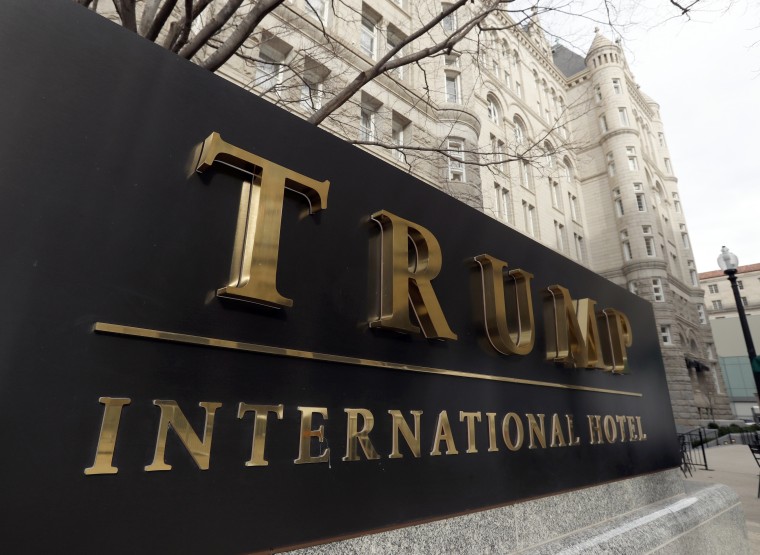The U.S. Constitution includes a once-obscure provision known as the "Emoluments Clause." As regular readers know, the provision is pretty straightforward: U.S. officials are prohibited from receiving payments from foreign governments. Traditionally, this hasn't been much of a problem for sitting American presidents -- but with Donald Trump things are a little different.
After all, this president has refused to divest from his private-sector enterprises, which means he continues to personally profit from businesses that receive payments from foreign governments.
The problem isn't just theoretical: plenty of foreign officials and representatives of foreign governments have spent money at Trump's properties.
Naturally, this dynamic has prompted a series of lawsuits, one of which went the president's way today.
A federal appeals court Wednesday threw out a lawsuit challenging President Donald Trump's ownership of a luxury hotel five blocks from the White House. It was a defeat for Maryland and the District of Columbia, who claimed that his vast holdings presented a conflict between his business profits and the nation's interest.Wednesday's ruling said the lawsuit failed to make a clear showing that Trump's ownership of the hotel was creating competition with local convention centers. And the court said the local governments couldn't show how any such competition, if it existed, could be legally prevented.
The 4th Circuit's unanimous ruling is online here (pdf). Each of the judges who heard the case were appointed by Republican presidents: George W. Bush, George H.W. Bush, and Trump.
Speaking of Trump, he took a predictable victory lap this morning on Twitter, describing the case as "a big part of the Deep State and Democrat induced Witch Hunt." I'm not at all sure what that's supposed to mean in this context, and the president has previously said he's uncomfortable with the conspiratorial "deep state" phrase.
Regardless, it's not surprising that Trump is pleased that conservative judges ruled his way, though if he thinks his emoluments-clause headache has completely gone away, he's mistaken.
For one thing, the attorneys general of Maryland and Washington, D.C., may yet appeal today's ruling. For another, it's not the only emoluments case that's still pending.
A separate lawsuit was filed by nearly 200 congressional Democrats, and that case has proceeded in ways the White House doesn't like at all.
Indeed, just this week, the Justice Department asked an appellate bench to block the congressional Democrats' case, insisting that a lower court was wrong to allow the litigation to move forward. Whether that court will intervene on Trump's behalf remains to be seen.
That said, with two similar cases unfolding in different appellate courts, there's a possibility we'll see split circuits, which would vastly increase the likelihood of the U.S. Supreme Court hearing the case.
All of which suggests this story isn't yet done.
A New York Times report from the spring added, "The consequences are potentially momentous. If either lawsuit moves ahead, Mr. Trump will be forced to disclose financial details of business operations that he has long fought to keep out of public view. If the Justice Department succeeds in stopping them, the president will be vindicated in his decision not to divorce himself from his business empire while in office."
